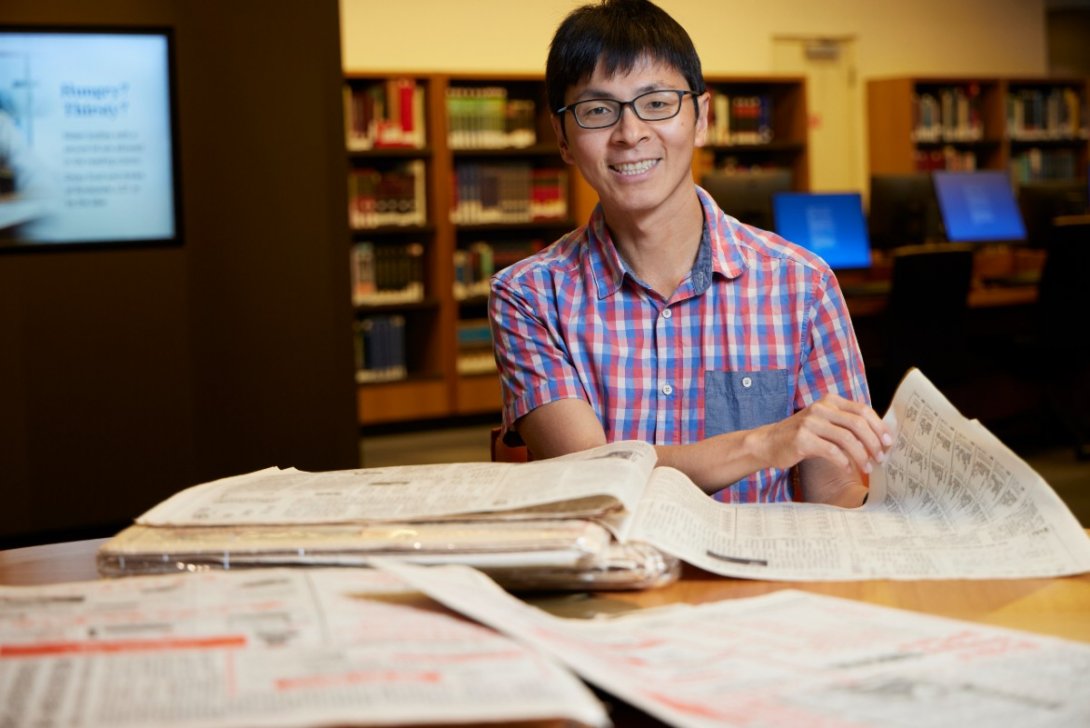
Applications for the 2025 Asia Study Grants program are now closed.
The National Library is undertaking a review of its Fellowships and Scholarships Program to ensure it meets the needs of researchers, PhD students and creators. This review may result in changes to some of the opportunities offered beyond 2025.
Please also read Information for Applicants.
Be inspired by the work of previous Asia Study Grant recipients.
Guidelines for the 2025 Asia Study Grants
With the support of the Harold S. Williams Trust, the Asia Study Grants program provides researchers and PhD students with the opportunity to research the National Library of Australia's Asian language and Asia-related collections. Up to five grants will be available in 2025. These grants offer a four-week period of intensive research at a negotiated time during 2025, where scholars have privileged access to the Library’s materials, facilities and staff. More information on our rich and varied Asian collections is available here.
What you'll receive
Recipients will receive:
- $5,000 to support a four-week residency at the National Library of Australia in Canberra
- supported access to collections
- full office facilities and workstation access
- high-resolution digital copies of collection materials if required for publication and other public uses (within set limits and according to access and copyright conditions).
Please note: Grants are awarded to an individual. Funding will be paid directly to the individual for the purposes of supporting their grant. Payments will be made in week 1 of the recipient’s residency at the Library. Any other arrangements between the individual and their employer are the individual’s responsibility. As the grant may have tax implications, it is recommended Asia Study Grant recipients seek professional financial advice.
Who can apply
Asia Study Grants are open to researchers, including PhD candidates who:
- are residing in Australia
- are attached to an Australian academic institution
- have not received a Fellowship or Scholarship from the National Library in the past five years
- need access to the Library's Asian language or Asian-related collections that are not available online or in their own region or institution.
Researchers may be in the early or later stages of a project, and can explore the extent of the Library's collections or focus on specific materials. The grant may also be used to undertake preliminary investigations in developing a larger or related project that may assist in attracting further research funding or work.
Preference for all grants is given to applicants who would otherwise find it difficult to access the Library's collections.
Note: the Library will accept repeat applications but an Asia Study Grant can only be awarded once. Former recipients, however, are still eligible to apply for a National Library Fellowship. PhD students may also wish to consider applying for a National Library of Australia Scholarship.
Selection criteria
In selecting applicants, the assessment committee will consider the following criteria:
- the value and quality of the proposed research
- the relevance of the Library's collections to the research
- the value of the experience to the applicant's academic progress (for PhD or early career researchers), or to the development of future research
- protocols surrounding the use of Indigenous cultural material (if applicable)
- the capacity of the applicant to communicate their research to a wider audience (e.g., public talks, blogs etc).
Priority will be given to those with a demonstrated need to access the Library's Asian language collections and who do not have such collections in their own region or institution. This may include other special Asia-related collections, such as cartographic or manuscript materials using Asian languages.
Expectations for recipients
Grant recipients will be required to:
- give a presentation to Library staff that highlights the work undertaken during the residency and research-in-progress
- acknowledge the support of the National Library and their Asia Study Grant donor in forums, presentations and publications resulting from the Fellowship
- assist the Library to promote the Asia Study Grant program through media and public communications, including through contributions to social media
- provide a report within one month of the agreed end date of their Grant outlining their experience, which will inform Council and the Fellowships Advisory Committee.
Additional information
Successful applicants will receive a Letter of Offer along with a Conditions of Appointment agreement that must be signed and returned. These documents outline the terms and conditions under which the Grant will proceed.
The Library will negotiate and confirm the residency dates with Grant recipients. The duration of the residency is expected to be four consecutive weeks, however we recognise that this may not always be possible. Successful applicants may negotiate to spread their residency over a maximum of two blocks of time, but no further financial support will be offered.
The timing of residencies may also be impacted by the Library's program of building activities. Access to some collections will be impacted at different times. To find out what collection are impacted and when, please visit our temporary changes to collection access page.
Recipients are encouraged to inform the Library of any research outcomes of the residency, and deposit material in the Library’s collection if appropriate.
Contact the Fellowships Team
For more information or to discuss your application, contact:
Fellowships Program Team
fellowships@nla.gov.au
+61 2 6262 1099